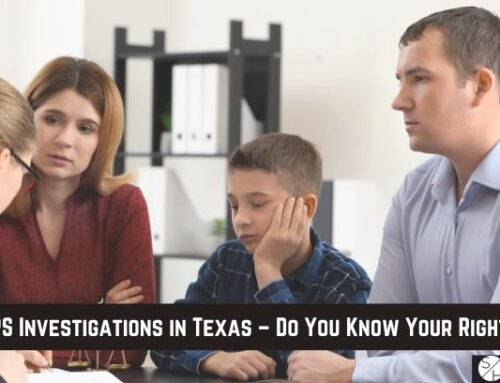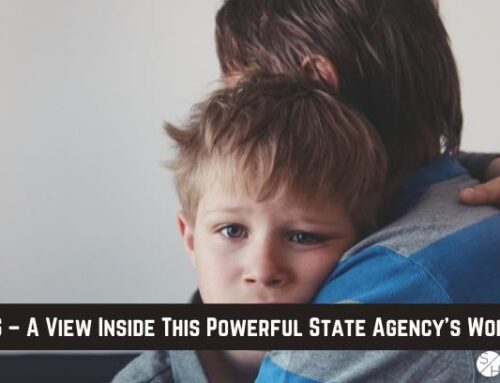Having a child removed from the family home by CPS is a nightmare that no parent ever wishes to experience.
A new law in Texas adds new clarity to CPS investigations and when the agency actually has the right to remove a child from the home.
In the face of this new law and all other laws regarding CPS and its ability to remove children, lawyers who help clients facing CPS investigations stress the importance of understanding what the law actually is and all changes as they come about.
Parents facing accusations or investigations should immediately find a CPS investigations attorney to represent them so their child is not unnecessarily taken into CPS custody.
House Bill 567 Clarifies The Definition of Child Neglect
Texas House Bill 567 became law on May 15, 2021 and goes into effect on September 1, 2021; it takes an important step in giving back some parental rights in CPS cases by clarifying the definition of child neglect.
Protecting children from unlawful and unnecessary removal from their family home, this new law states that neglect in Texas is now defined as a parent's:
- Act or lack of action that causes actual harm to a child.
- Act or lack of action that puts a child in immediate danger of harm.
- A parent’s blatant disregard for the consequences relating to that action or lack thereof.
Previously, CPS investigation lawyers have represented many parents against accusations by CPS that there were suspicions of neglect, but no actual proof.
Once in effect, this law should drastically reduce the instances of children being removed from parental homes where no actual neglect has been proven.
Parental Marijuana Use No Longer A Basis For Removal
CPS attorneys can now also advise parents about another detail within HB 567 relating to the use of marijuana and whether that is grounds for removing children from the family home.
Previously, personal use only of the substance permitted CPS to come in and remove children from a home, whereas now the Bill clarifies that a parent shall not be considered negligent from simply testing positive for the use of cannabis.
Neglect must be determined only if there is evidence via a CPS investigation that cannabis use by the parent has become detrimental to the child in some way.
Children Suffer When Needlessly Removed From Their Parents
An important factor outlined in Texas HB 567 that is fully supported by CPS lawyers is that children are negatively impacted when they are removed from their parents, even for short periods of time.
This is especially significant considering how many child welfare advocates and CPS investigation attorneys alike find that CPS too often equates lower-income with neglect, removing children from homes far too soon, and frequently before any actual neglect has been proven.
The new law offers greater protection of parents and children as well as their rights, solidifying the importance of avoiding the removal of children from parents as much as possible and doing the proper investigation to ensure that children are actually in danger to the degree that removal is the best option.
Know Your Rights When Dealing With CPS
Child neglect and endangerment is a serious issue that requires immediate attention and many times a CPS investigation for the welfare of that child.
Yet what parents and their children do not need is blanket accusations without proof that result in the child being unnecessarily removed from the family home.
Lawyers who help parents facing unproven CPS accusations make sure that their rights are being protected, especially now with the signing of Texas HB 567.
If you have been accused of child neglect or abuse or are facing threats that your child will be removed from your home, contact a qualified CPS attorney right away.
Schreier & Housewirth Family Law
1800 West Bowie Street, Suite 200-E
Fort Worth TX 76110
817-923-9999
Gregory L. Housewirth is a Board-Certified Family Law Specialist practicing in Fort Worth Texas. With 30 years of family law experience, Mr. Housewirth has represented hundreds of clients in divorce, custody, CPS, modification, and grandparent cases. In addition, Mr. Housewirth is a qualified family law mediator and a member of Collaborative Law Texas, a practice group dedicated to promoting collaborative divorce in Texas.






